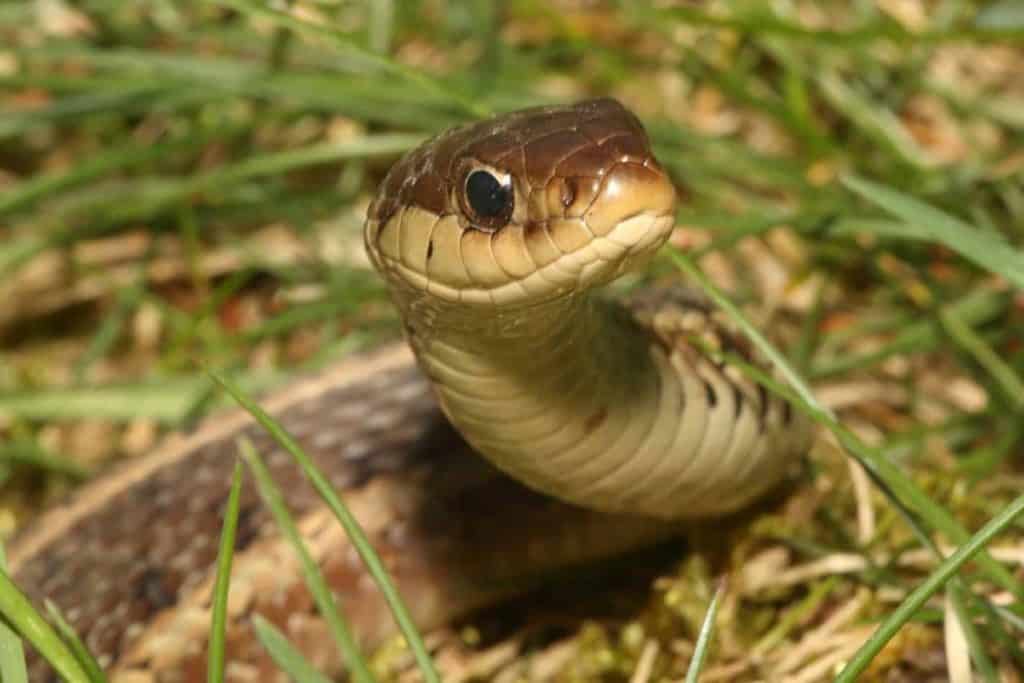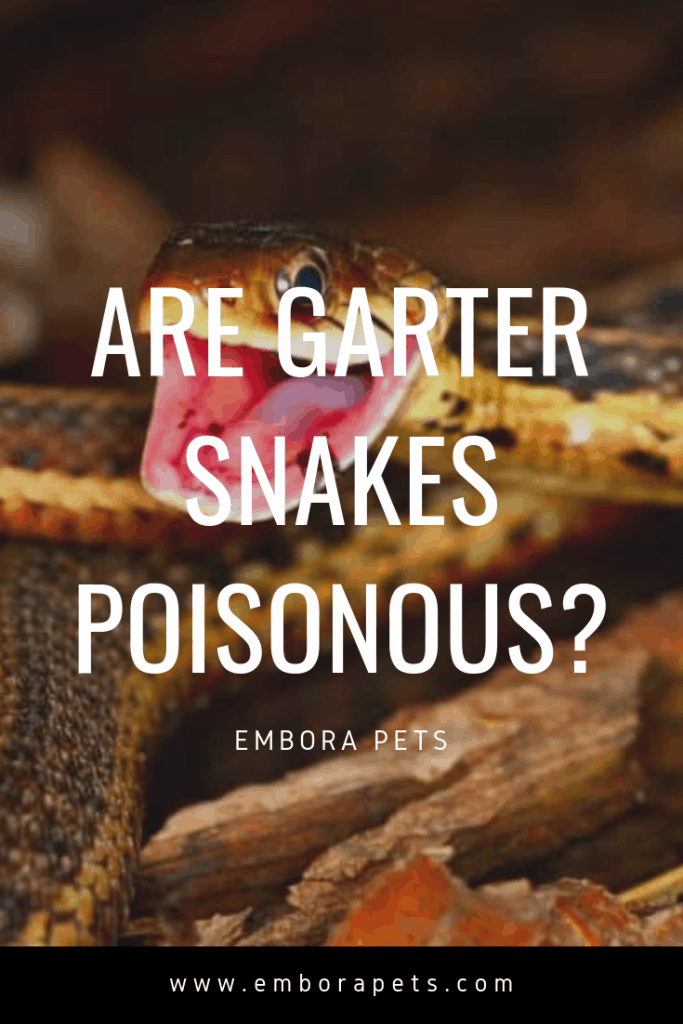Are Garter Snakes Poisonous?
Growing up on five acres of land full of wildlife, I was always hesitant of getting close to Garter Snakes because I didn’t know if they were poisonous. I came across Garter Snakes a lot during that time. So I did some research to see if Garter snakes are poisonous or not.
So are Garter Snakes poisonous? There are many species of Garter Snakes, and a small number do have a venomous neurotoxin, but it is mild in composition and does not affect humans.
Garter Snakes are one of the most common species of snakes in North America, and there are several different species of Garter Snakes. Those species that do have the neurotoxin venom often lack a large enough bite or fangs to deliver the toxin to a human’s nervous system. I explore the ins and outs of Garter Snake bites in the following sections.
What Happens if a Garter Snake Bites You?
Garter Snakes are a popular breed of pet because they are docile in nature and relatively small and easy to feed and keep. However, like most other types of snakes, a Garter Snake can be provoked to bite its owner if it feels threatened or particularly hungry.
A Garter Snake also has large gums and a gland called the Duvernoy’s Gland that also secretes a mild toxin. Most Garter Snakes use their teeth and neurotoxins to immobilize their prey, and in those species that contain neurotoxins, they can also use their saliva to paralyze them.
If a Garter Snake bites you, the area around the bite may become swollen and itchy. It is very rare that you will have an allergic reaction to the snake bite. However, the area can become infected if there are harmful bacteria in the snake’s mouth from the food it eats.
You should immediately clean and disinfect the area where you have been bitten and seek medical attention if an infection begins to develop.
Most Garter Snakes don’t continue to hang on once they’ve bitten you. Most will spray their owners with a musk or strike out with a quick bite.
Once a Garter Snake bites you, it can be challenging to remove them from you, especially if they are hungry and mistake you for food. To remove a Garter Snake you should follow these steps:
- Push the Garter Snake’s head forward so that the
backwards facing teeth are removed - Check to make sure the teeth are disengaged
- Carefully remove the snake’s mouth so that you don’t cause further damage to yourself or damage to your snake. If a snake’s mouth is damaged, this can lead to further infection in both yourself and the snake
- Place it back in its habitat and then clean the wound
Once the snake is back in its habitat, give it some time to relax and feed it if it seems to be hungry. Try handling it again after it has had time to rest and feel safe. Here, you can find an article we wrote where we cover everything you need to know about snake bites of all types, including what to do and also how to decipher between a venomous snake bite and a non-venomous snake bite.

How to Prevent a Garter Snake Bite
Like I mentioned above, a Garter Snake rarely bites unless it feels threatened or hungry. There may be other instances where your snake lashes out at you, but generally, a Garter snake is more likely to spray you with a musk.
A Garter Snake’s musk is a foul-smelling liquid produced in their body. This musk is often accompanied by any available feces that the snake has stored up.
You can prevent a Garter Snake from biting you by handling the snake properly. Since Garter Snakes do not behave like constrictor snakes, the way you hold your Garter Snake is important.
When holding it, you should support its body properly so that it doesn’t feel like it is falling or in danger. If it does feel threatened, it will begin thrashing, release musk, or occasionally strike out and bite you.
Though most Garter Snake’s have docile natures, some may never get used to their owners, causing them to become scared with every human contact. You should become familiar with this; it will help you understand if your snake will bite you in certain handling situations.
How to Remove Musk and Disinfect a Bite
Even though Garter Snakes are not poisonous, it is important to maintain proper safety and handling procedures with your pet snake. At some point in your snake ownership, you will get musked or bitten. I wanted to leave some tips for you to help you deal with these incidents when they occur.
If you are handling your pet Garter Snake and suddenly you find your hand or clothes covered in a foul-smelling liquid and some stray snake poop, your snake has probably panicked and covered you in its musk. Don’t worry, this nasty smelling liquid can be easily dealt with.
Most musk can be removed by simply washing your hands with soap, but if you find that your skin still smells after a couple washes, try using dish soap or a substance high in citric acid.
Citric acid is often used to remove skunk smell from humans and pets and would likely work in this case too. Tomato juice is effective at removing particularly potent smells.
If you are bitten by a snake, unfortunately it may not be simple enough to just wash your hands. To be safe, you should start by cleansing the wound with running water, not soap. Though the snake isn’t poisonous, the wound still needs to be cleaned to prevent the spread of bacteria.
After you have rinsed the wound, use a mild anti-bacterial soap. You shouldn’t use hydrogen peroxide in this situation because it might prevent your tissues from healing quickly. Next, dab your wound dry, trying not to create friction on the wound. If you rub the bite, it may cause further irritation.
Since Garter Snake bites can be a risk of infection, you should not use band-aids or bandages of any kind to cover the wound. If you do, this could cause the area to become a perfect place for bacteria to grow and breed.
Watch the wound carefully over the next few days to make sure that it doesn’t show signs of infection. If it does, seek medical attention immediately and don’t rely on home remedies.
In some rare cases, you may find that you are allergic to a Garter Snake’s bite. If this is the case, do not try to treat it with over-the-counter allergy medication. Go to a medical professional and seek advice and treatment first.
These steps should not be followed if you’ve been bitten by a poisonous snake. If you are bitten by a poisonous snake, seek help immediately.
Related Questions
Can you remove the venom from a Garter Snake? Since the Garter snake has a relatively small bit as well as mild toxins, it is not worth it for an owner to try and remove the fangs or toxins from the snake. This could cause a potential feeding problem in your snake.
Is a Garter Snakes’ venom harmful to children or small pets? Children who are bitten by a Garter Snake are not in immediate danger, but to be safe, they should be taken to a medical professional who can examine the bite and make sure there is no sign of infection. As for small pets such as dogs or cats, they also might experience infection or mild swelling. They should be taken to a vet if the area shows signs of infection.

